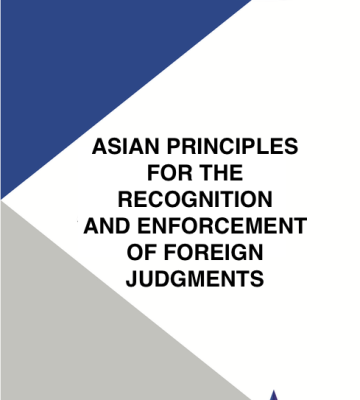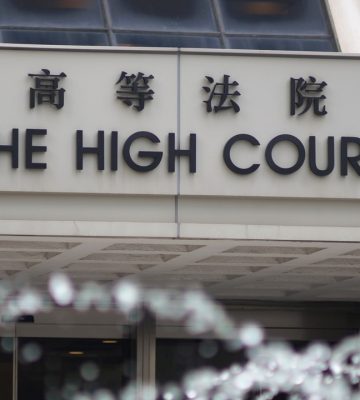In judgment Xiamen Tonghin Furniture Industries Co Pte Ltd v Goh Heng Tee [2025] SGHCR 36 dated November 5, 2025 (Singapore Judgment), Assistant Registrar Elton Tan Xue Yang of the General Division of the Singapore High Court (Singapore Court) recognized a judgment by the International Commercial Court of the Xiamen Intermediate People’s Court (Xiamen Judgment).
Background
Xiamen Tonghin Furniture Industries Co Pte Ltd (Tonghin), Applicant in the Singapore proceedings, was a Chinese furniture manufacturer and seller and was owned by a Singapore company. Goh Heng Tee, Respondent in the Singapore proceedings, decided to close down Tonghin and was made its legal representative to be responsible for the sale of Tonghin and the distribution of sales proceeds to shareholders.
Tonghin subsequently sued Goh in the Xiamen Intermediate People’s Court (Xiamen Court) on the ground that Goh misappropriated the sales proceeds (First Xiamen Proceedings). Tonghin’s lawsuit was supported by the Xiamen Court which ordered Goh to return payments of over RMB 10 million as well as return relevant accounting books. Goh appealed to the Fujian High People’s Court (Fujian Court) which remitted the case back to the Xiamen Court on the ground that the facts relied upon by the Xiamen Court were unclear.
The Xiamen Court then formed a new collegiate panel via its International Commercial Court (Second Xiamen Proceedings). Neither Goh nor any of his lawyers appeared in the Second Xiamen Proceedings. The Xiamen Court made a new judgment, i.e., the Xiamen Judgment, after ascertaining relevant facts, ordering Goh to return payments of over RMB 11 million, among others.
After the Xiamen Judgment took effect, Tonghin applied to the Singapore Court for recognition and enforcement. Goh resisted on the sole ground that he did not receive any notice or document for the Second Xiamen Proceedings and that he became aware of those proceedings only when Tonghin made the current application to the Singapore Court. As such, Goh contended that the Xiaman Judgment should not be recognized and enforced due to breach of natural justice.
Decision
The Applicant and the Respondent both provided expert opinions of differing conclusions to the Singapore Court on the provisions on service under Chinese law and the service procedures undertook by the Xiamen Court.
The Singapore Court stated that whether natural justice is breached is a question for the court addressed (in this case the Singapore Court) and the views of the court of origin (in this case the Xiamen Court) are not determinative. In determining if there has been a breach of natural justice because the judgment debtor (in this case Goh) has not been notified of proceedings, the Singapore Court will consider whether there has been proper service according to the applicable foreign law on service.
Further, the Singapore Court said that if a defendant has agreed, or is deemed to have agreed, to a particular method of service, and service is effected in accordance with that agreed method, then it is immaterial that the defendant did not receive the actual notice.
Based on the facts ascertained, the Singapore Court found that the service procedures followed by the Xiamen Court in the Second Xiamen Proceedings met the requirements of substantive justice in both China and Singapore, and that the Xiamen Judgment is therefore not in breach of natural justice.
The Singapore Court accordingly recognized and enforced the Xiamen Judgment.
Commentary
The Singapore Judgment described in detail the procedures by which the Xiamen Court effected service on Goh. For example, in the First Xiamen Proceedings, the Xiamen Court attempted service on Goh to various addresses provided by Tonghin. After all those efforts proved unsuccessful, it requested for assistance from the Singapore High Court via China’s Supreme People’s Court, and the Singapore High Court replied with an acknowledgement of successful service. In the Second Xiamen Proceedings, the Xiamen Court made repeated service to the address confirmed by Goh’s lawyer in the appeal proceedings before the Fujian Court, and all those services were acknowledged. However, service of the Xiamen Judgment to that address was unsuccessful. So the Xiamen Court also served the Xiamen Judgment again on Goh in Singapore which was successful.
Service has long been a pain point in cross-border matters. By effecting service both at home and abroad, Xiamen Court has been extra prudent in procedures to ensure the effectiveness of service.
The Singapore Judgment has also shown deepened understanding of the courts in Singapore of relevant Chinese laws, which is reflective of continuing cooperation between the two judiciaries.
The Singapore Judgment can be read here. We thank Dr Yu Meng for sharing this development with us.
More about ABLI’s work on the recognition and enforcement of foreign judgments in Asia can be found here and here.
Whilst every effort has been made to ensure that the information contained in this update is correct, the Asian Business Law Institute disclaims all liability and responsibility for any error or omission in this update, and in respect of anything, or the consequences of anything, done or omitted to be done by any person in reliance, whether wholly or partially, upon the whole or any part of the contents of this update.




![[Interview] Landmark Indonesian Recognition [Interview] Landmark Indonesian Recognition](https://abli.asia/wp-content/uploads/elementor/thumbs/Interview-Landmark-Indonesian-Recognition-r77cnxow0ude3j2mxz2wbivxrofvqnqg7fg3rw1zx0.jpg)

